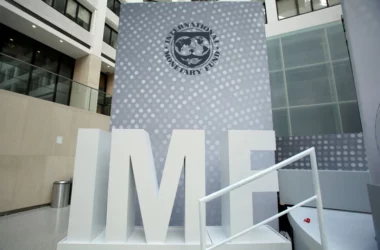
While a new constitution may be capable of unshackling The Gambia from the past by making the state power accountable, the constitution can only transform the lives of the citizen if it is safeguarded by the citizens, interpreted and applied in a way that supports the social conditions of the citizens it seeks to protect.
A new constitution will no doubt require a functioning, effective and professional judicial system, which is able to do its work without fear or favour.
Crucially thought, the constitution should not create legitimate expectation for unaffordable welfare state.
Certainly, the consultation meetings of the CRC provide Gambians with the opportunity to reflect on the past; and draw distinction between realities, dreams and aspirations and between deliverable and undeliverable issues as wells as rights.
It may be seen as self-defeating to overload the constitution with undeliverable rights, because in my view this amounts to the opening of floodgates to potential legal claims against the state in the future, which will serves as quagmire of own creation.
Indeed, the essence of a constitution is to give individuals the safeguards that are necessary to protect their inalienable rights from being trampled upon by the arbitrary and brutal use of state power.
While we as citizens contribute our part in the shaping of the new constitution, we must be mindful so as not to impose onerous obligations (e.g., free healthcare, and free education at all levels) on the state that cannot be delivered in context.
In the politics of realism, no right is given for free; every right has a corresponding obligation. Thus, to provide much of the rights we aspire in the new constitution, we perhaps need to focus our attention on what we could do to help contribute to the actualisation of those rights, in the future.
If we are to enhance the proper functioning of a democratic society, the fundamental rights that are recognised as international norms must be the bedrock of our new constitution. [Do allow me to depart from the topic a moment, there is room for us to do more when it comes to minority groups’ political representation; in that we should actively work to make our political theatre much less polarised and more representative of our society.
To achieve that we must go beyond the text of the constitution and enact non-discriminatory and positive discrimination laws that are capable of enhancing the effective participation of minority groups and women in the political process – Addressing the issue of the participation of the minority groups and women are not only in conformity with and spirit of the UN’s declaration on the rights of minority groups, but they are clearly morally the right things to do so.
Furthermore, a tangible separation of powers must be the basis on which state organs operate to prevent concentration of power in one body. This will not only entrench the democratic society, but it will also prevent the abusive use of power by the Executive.
Although the 1997 Constitution provides some level of separation of powers, it fails to allow basic separation of functions between the core institutions of government.
Therefore, I take the view that the new constitution should go beyond the tripartite separation of powers. There seems to be no plausible reason why the Speaker of National Assembly should be nominated by the President but not elected by parliamentarians.
If this is retained in the new constitution, it would constitute the most obvious mockery of the principles of separation of powers. And to my mind, it cannot also be the case that the powers to appoint judges remain vested upon the President in the new constitution.
The independence and impartiality of the judiciary has to be real and not merely dressed-up. It seems to me that the perceived independence and impartiality of judges is likely to be called into question if judges are appointed by the President; this will undoubtedly dent the confidence of the public in the work of the Judiciary.
Thus I believe there is a plausible case for the strict separation of the functions between the executive, the legislature and the judiciary. Clearly, justice has to be demonstrably seen to be served.
If the CRC is able to capture and entrench much of the aspirations of Gambians into the new constitution, and Gambians take ownership and live by it effectively, together we will prevent the creation of an absolute power, which is the greatest threat to human existence.
Forward with The Gambia!!
Solomon Demba












